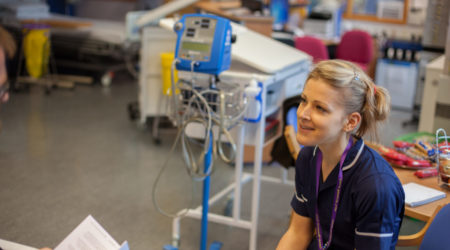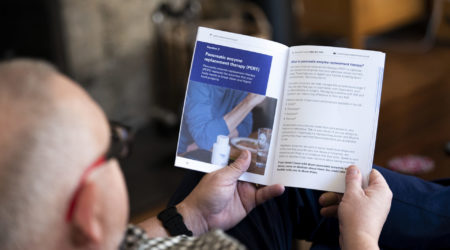On this page you will find information videos about clinicals trials, covering:
- An overview of clinical trials
- What types of clinical trials are there?
- Are clinical trials suitable for everyone with pancreatic cancer?
- Advantages and disadvantages of clinical trials
- How to decide if you want to take part in a clinical trial
- What happens if you decide to take part in a clinical trial
- Personal stories about taking part in a clinical trial




